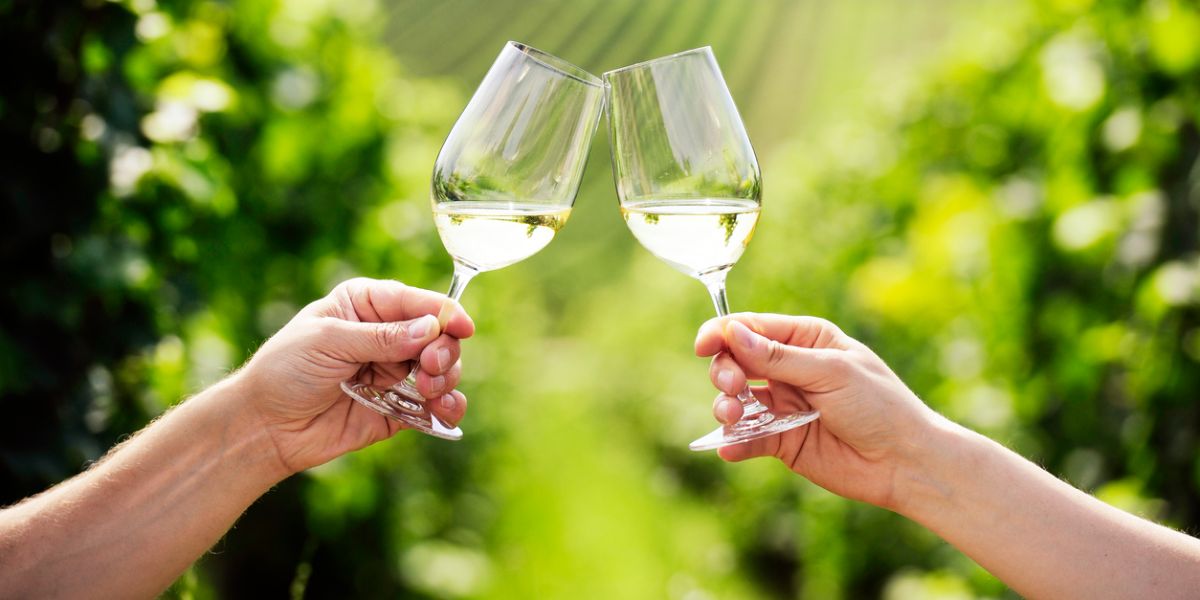How to Pronounce Riesling: English and German
Riesling is a floral white wine that contains all types of fruity flavors, depending on where it is produced. While the Riesling grape initially originated in the Rhine Region of Germany, other neighboring nations like France, Switzerland, and Austria also produce Riesling. A common feature of Riesling wines includes a light body, moderate to high acidity with a crisp taste, aromas of stone and citrus fruits, and a distinct gasoline smell-especially in aged wines. But how do you pronounce that name? It can be a mystery as to how to pronounce Riesling the correct way.

How to pronounce Riesling in German? While Riesling has been produced in Germany for many centuries, it was only introduced to America when immigrants arrived in the late 19th century. Despite being produced in mass quantities in Washington state, the Finger Lakes region in NY, Oregon, and Michigan, Riesling has only just started to become a popular beverage in the United States.
RIESLING: MISPRONOUNCED AND MISUNDERSTOOD
Two reasons why Riesling has been slow to catch on with the masses is because the wine is mispronounced and misunderstood. When it comes to pronunciation, there are several ways to say Riesling, including ‘Riss-ling,’ ‘Rice-ling,’ Reece-ling,’ ‘Rise-ling,’ ‘Roo-sling,’ and even ‘Reeze-leng.’ Because of the multiple pronunciation possibilities, wine consumers may shy away from ordering the beverage at restaurants for fear of sounding foolish or ignorant. The fact of the matter is that in most North American restaurants, all these pronunciations are widely understood and accepted. Plus, there is no other wine with a name similar to Riesling; hence, the consumer is unlikely to be served the wrong wine.
HOW TO PRONOUNCE RIESLING IN GERMAN
The German pronunciation of Riesling typically puts emphasis on the second vowel in the name (“e”) when two vowels are put consecutively together. Therefore, the German pronunciation equates to “reece-ling.” Some English pronunciations might have it as “Roos-ling” or even “Riz-ling.”
But even if you are shy about the way you pronounce Riesling, today, in the era of smartphones, there are software programs that can readily translate the name of the wine for you, or you can even show the waiter a picture of the Riesling wine you want.
With the pronunciations out of the way, why is Riesling such a misunderstood wine? The key reason is that a significant amount of Riesling produced in Germany is sweet, and American wine drinkers shied away from sweetened beverages. But the fact of the matter is that Riesling comes in a broad range of styles that vary from sweet to bone dry and several types in between these two extremes.
Sweet Riesling: Most of the German Riesling does have some degree of sweetness (e.g., spätlese, Auslese, Beerenauslese), but the North American varieties tend to be on the dry side.
Dry Riesling: Dry Riesling is usually produced in Austria, France, and Washington. The dry wine is prized for its quality and frequently sought after at restaurants (e.g., Kabinett)
Semi-Sweet Riesling: The semi-sweet Riesling is a well-balanced wine and is rapidly gaining popularity in the USA. Most of it is produced in Washington and the Finger Lakes regions.
Sparkling Riesling: This is a light, bubbly wine with a touch of sweetness that is refreshing and very easy to drink.
While trying to determine how to pronounce Riesling in English or how to pronounce Riesling in German, one thing is for certain: the best feature about Riesling is that it is a very versatile wine that can be paired with a wide variety of foods. Some great quality Riesling wines include the following:
2021 SWEET RIESLING
2021 J RIESLING
2021 DRY RIESLING
2018 VIN DE GLACIÈRE RIESLING